Why Music Education is Beneficial in Child Development
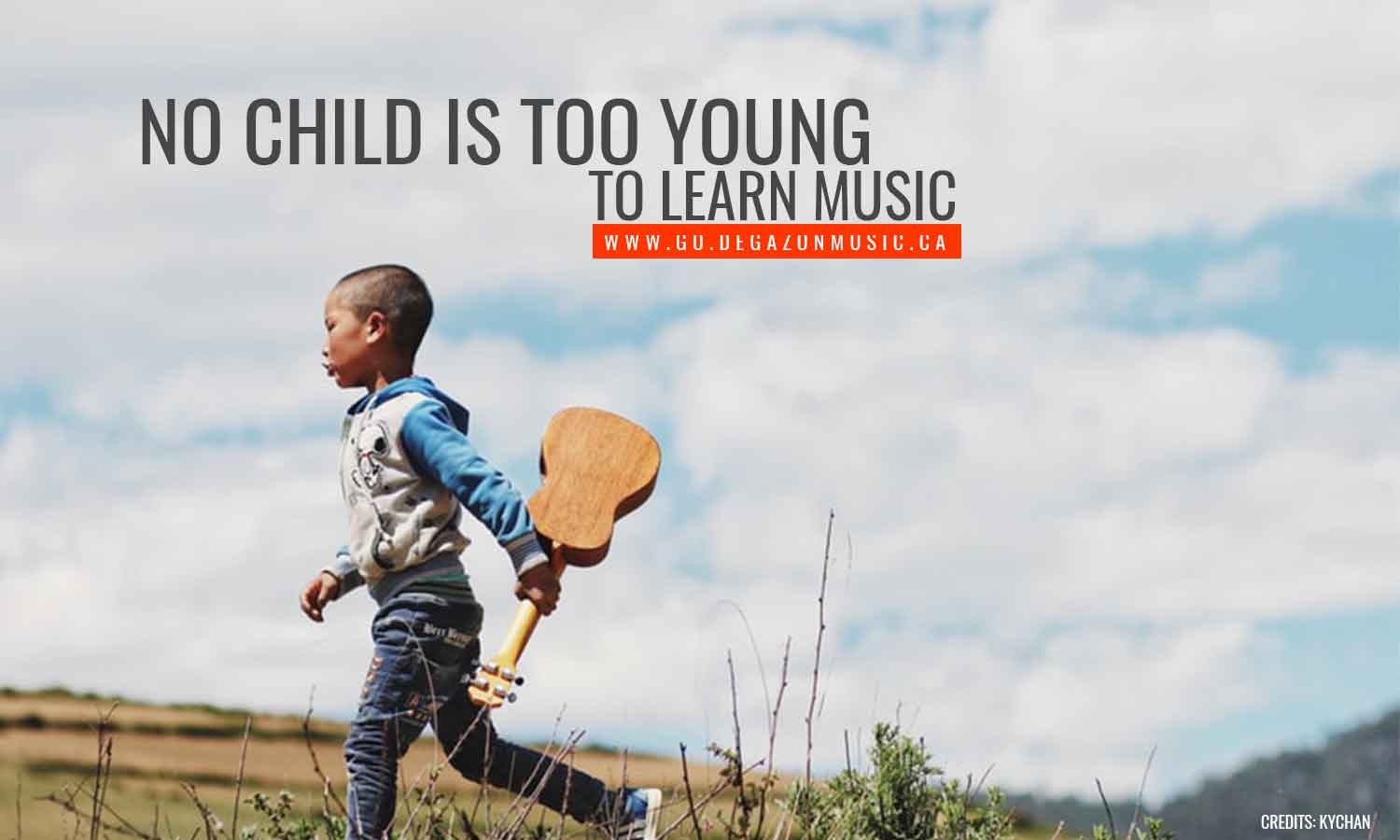
Did you know that music offers a wide range of benefits in sculpting a person’s cognitive abilities? Music is to the brain what weightlifting is to the muscles. Music training — like playing an instrument or taking voice lessons — are closely associated with brain development. Exposing a person to music during their early formative years has a lasting positive impact throughout their life.
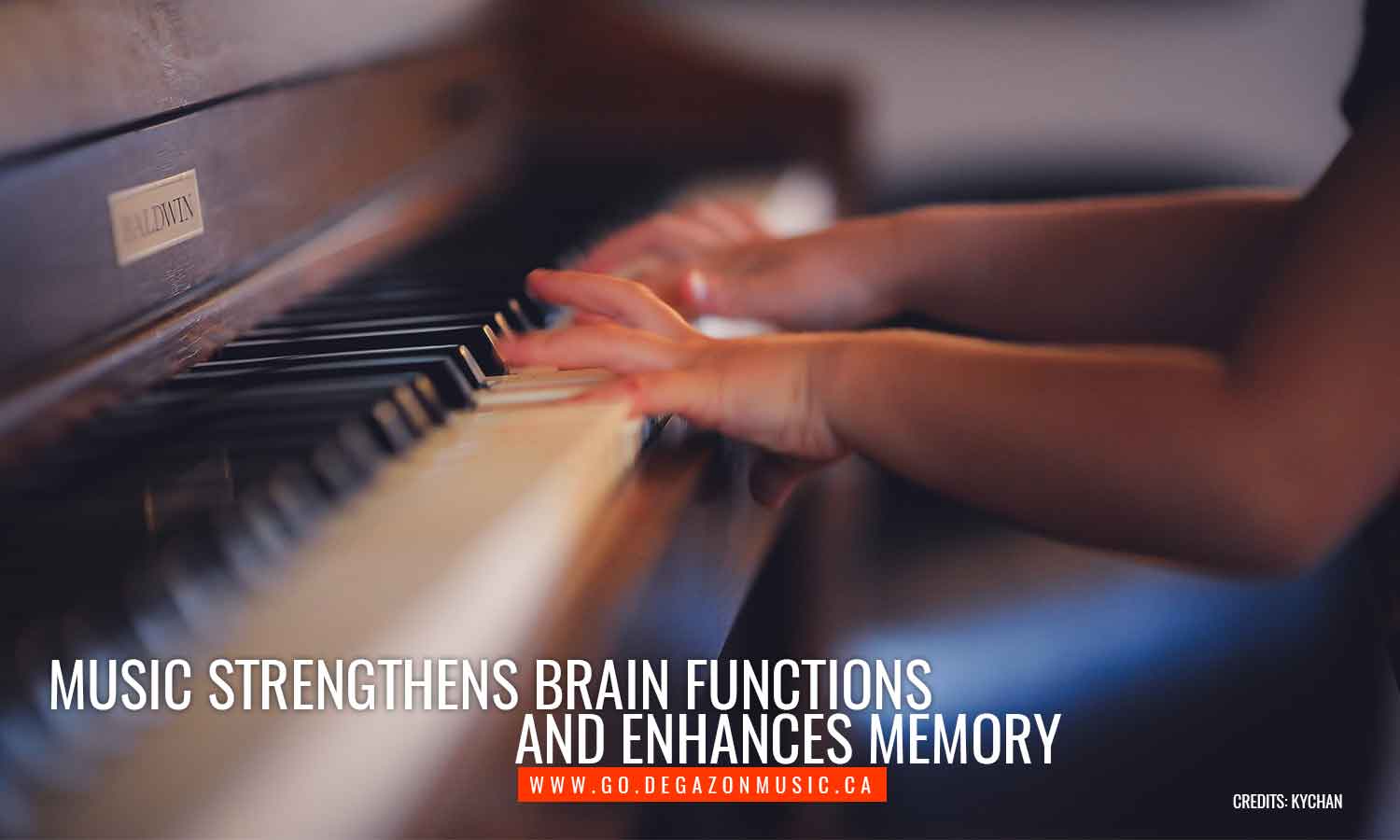
Music boosts brain development
ReSearch Inc.ers at the Brain and Creativity Institute found that musical experiences at a young age promote brain development, improved memory, and sound processing among school children. Musical instruction allows a child to harness their auditory, cognitive, emotional, and social skills, which then carve new neural pathways in the brain. Musically trained children are also more likely to perform better in memory tests related to general intelligence skills such as literacy, verbal memory, mathematics, and problem-solving ability.
How music impacts your child’s cognitive development
- Literacy – Our brains process music similarly to speech. Music and language share the same elements of pitch, timbre, and timing. When children become familiar with these elements as they go through musical instruction, their ability to process language improves.
- Vocabulary – Child Psychologist Don McMannis explains that learning music engages three different areas of the brain simultaneously — language, hearing, and rhythmic motor control. While a song elicits emotions in a person, it also stirs increased awareness and mental acuity. This is why lyrics eventually get embedded in the brain when a person repeats and memorizes a song.
- Memory – One study conducted by the Institute of Education at the University of London cited that learning an instrument can enlarge the left hemisphere of the brain (the area dominantly responsible for memory). The study found out that individuals training to be musicians may have better memory and can retain more information compared to those who have never held an instrument.
- Creativity – Every session in their music class is an opportunity for your child to unleash their creativity. Their creative muscle is exercised with every song they compose, guitar or piano practice, or with every vocal lesson they immerse themselves in. The Royal Conservatory of Music puts it in perspective: there is a marked difference in inter-hemispheric (left and right hemispheres of the brain) communication in people learning music. Greater connectivity in the brain means greater creativity.
- Confidence – Through music, kids can freely express their individuality (because they get to identify the kind of music that speaks their creative truth) and perform in front of other people, building their self-esteem.
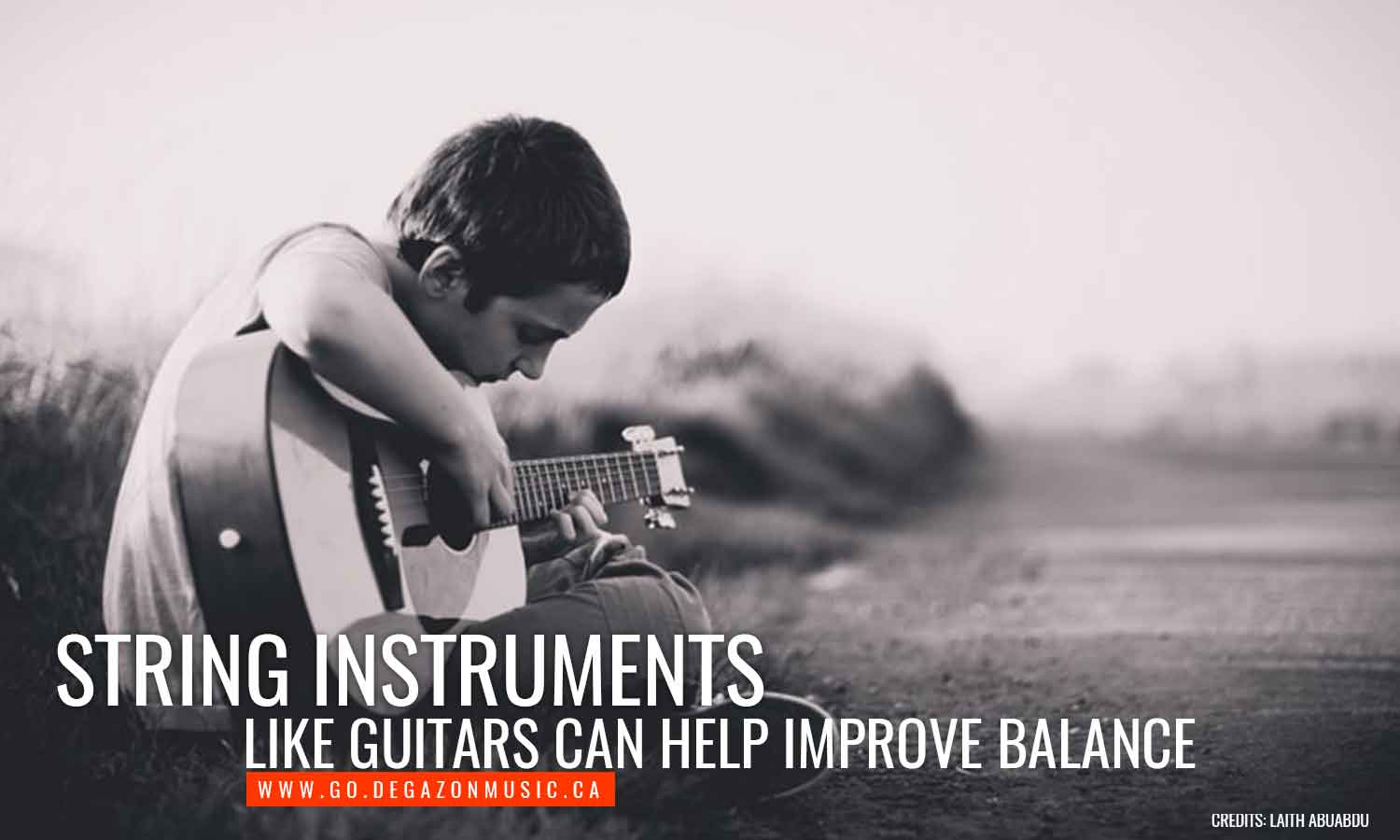
Music cultivates motor and coordination skills
Playing different kinds of musical instruments is an avenue for children to improve their movement skills. This is because mastering an instrument allows them to use their hands and feet regularly. Specifically, the continuous playing of instruments help develop the following movement skills:
- Motor planning – These skills enable a person to remember and perform an action or a movement. Motor planning skills are responsible for successfully delivering physical tasks that involve multiple steps, like washing hands or tying shoelaces.
- Fine motor skills – These skills give us the ability to use the small muscles found in our hands and wrists. Fine motor skills enable us to make simple everyday movements like write, type, and wash hands.
- Gross motor skills – These abilities help people do movements that involve the use of large muscles in the arms, legs, and torso (e.g. catch, throw, run, and jump).
Learning to play instruments can also be a useful therapy for children experiencing coordination and movement issues. The following musical instruments may help strengthen a child’s motor skills:
- Guitar – Acoustic guitars require fingering and firm picking techniques. It can be played standing up or sitting down. For children with coordination and balance concerns, the addition of a strap can help support the weight of the instrument.
- Drums – Playing the drums is also a form of whole-body workout as it involves the movement of the arms, core, and the lower body. It also boosts a child’s strength. Learning the instrument is recommended for kids with motor skill problems since it trains them to control their movements while playing.
- Piano – At the onset, playing the piano requires dexterity, finger and arm strength, and endurance to be able to hit the keys, play a combination of notes, and use varying rhythms. Minor leg and foot strength is also needed in working the pedals. Over time, playing the piano can develop core strength and proper posture.
Learning what is required for playing a particular instrument can help you and your child in picking the right one that suits their needs. However, the essential factor in choosing one is your child’s eagerness to play it. This desire will keep them motivated and stay on course, even when learning to play the instrument becomes challenging.
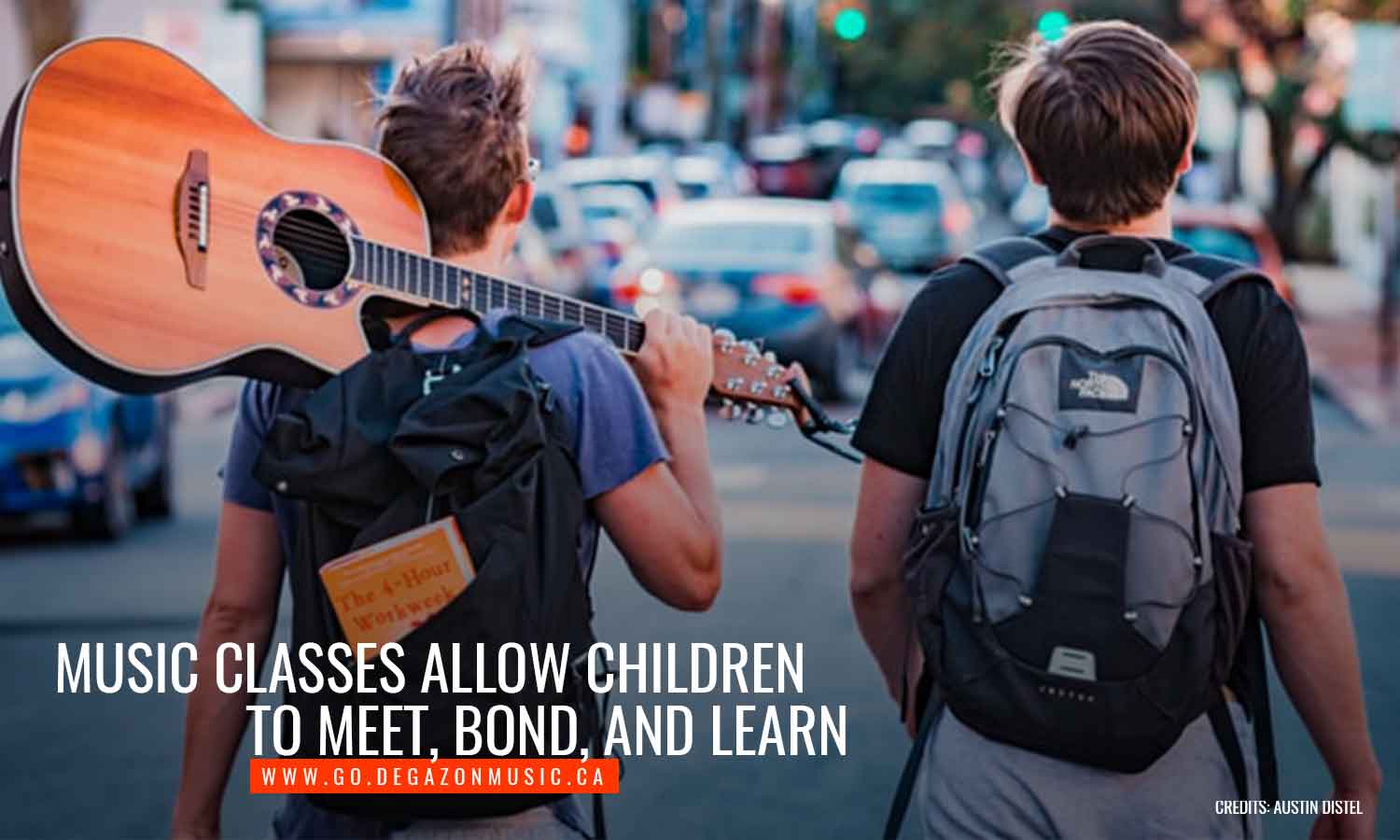
Music develops social skills
Children who make music a part of their lifestyle understand themselves and other people better, according to Dr. Alexandra Lamont, lecturer in the Psychology of Music at the University of Keele. Music classes not only deepen your skills, knowledge, and musical artistry, but also help you meet like-minded, passionate musicians and develop lifelong friendships.
Your child’s first interaction may with their teacher. However, over time, they will start to rub elbows and take classes with other students with whom they share the same passion for one instrument or musical style.
Taking part in music also teaches children the value of teamwork. Students get to learn how musicians collaborate harmoniously to create a melody or reach either an accelerando and crescendo. Achieving a unified goal is one great way to sharpen social skills.
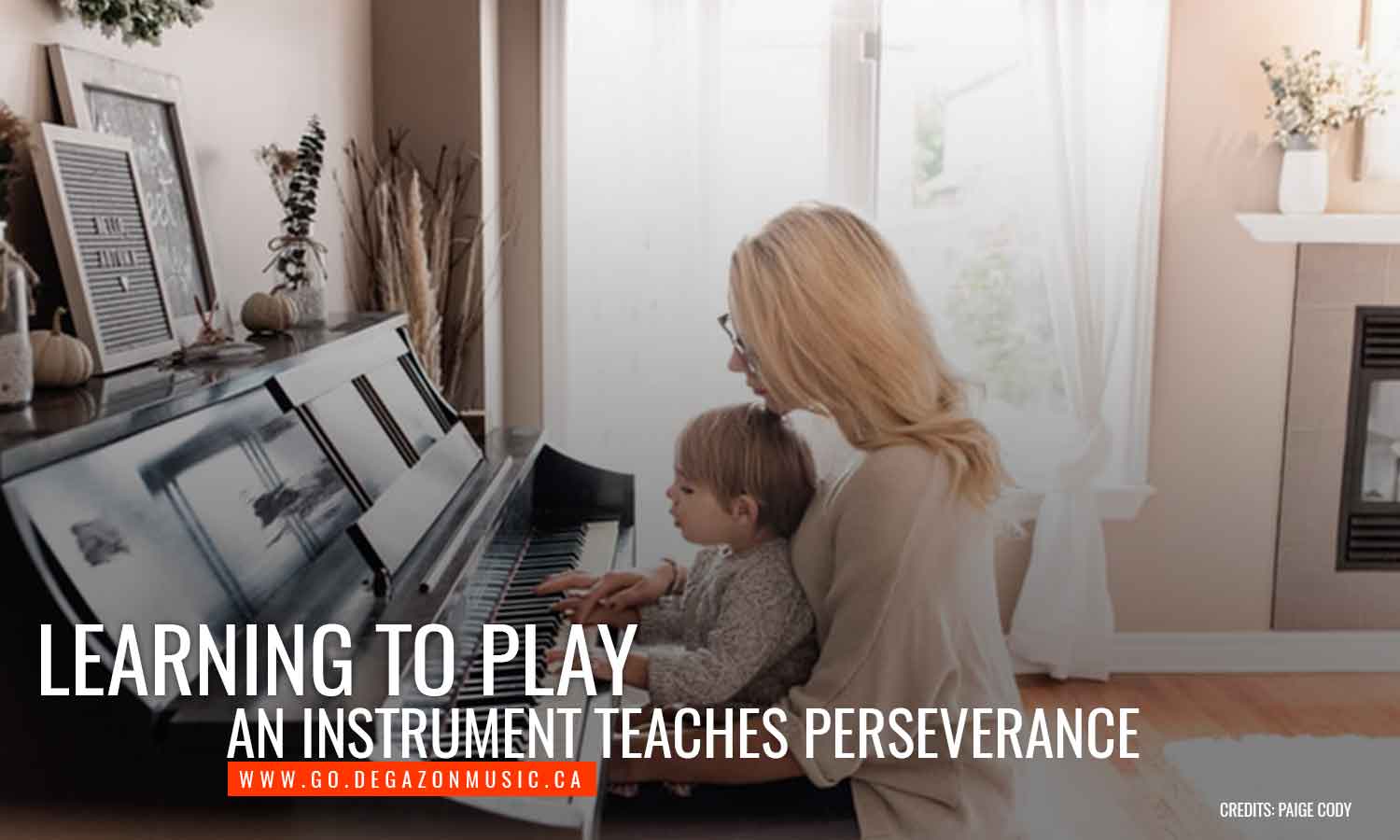
Music hones patience and discipline
To master an instrument, one needs to put in hours of diligent practice. The process of learning how to play an instrument correctly isn’t as easy as learning your A-B-Cs. You first need to learn the basics (e.g. how to hold an instrument properly) and work your way toward advanced lessons. The experience of mastering an instrument instills in children the essence of patience.
For instance, before learning how to play the violin, you must first learn how to hold the instrument, how to hold the bow, and how to position your feet. This is the same for all instruments; and it teaches kids to persevere through days, months, and even years of practice if they want to crush their goals (e.g. perform in a recital, memorize a solo piece).

Music allows children to discover different cultures
Learning and playing instruments at a young age is a way for children to appreciate the importance of music in shaping cultures all over the world. For example, teaching your child to play the violin widens their awareness about how classical music was popularized by Austrian and German musicians. On the other hand, playing the piano lets them appreciate the versatility of the instrument in accompanying a diverse repertoire of musical styles that originated in the American South, like jazz and classical music.
It’s vital to get kids acquainted with diverse cultures because this opens their minds to different ideas and prospects existing beyond their own, leading them to get a clearer understanding of how music and the arts are essential in crafting identities in different societies.
Choosing a skilled and experienced mentor is crucial in developing your child’s musical potential. Learning to play an instrument can change your child’s life for the better. They will continue to benefit as they delve deeper into their musical studies through life.
DeGazon Music of Vaughan is the right training ground for your young musicians. Since 1995, we have helped thousands of children discover their musical talents. With our qualified teachers and flexible class schedules, DeGazon Music can provide you with a learning experience for students aged four to 18 years old. We also serve the communities of Kleinburg, Bolton, Woodbridge, Nobleton, Maple, and Brampton.
Schedule your FREE trial lesson and consultation by filling out this form or call us today at 416-527-3769 x1.

Comments ( 2 )